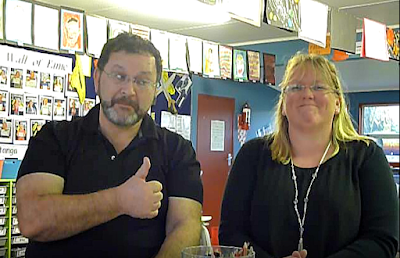It was with
some trepidation this week I approached the topic of Communities of Learning (CoL)
I realised that it wasn’t as foreign topic as what I had originally though.
I realised that when
I stopped and thought about the definition given by Wenger et al. (2002), and
recorded in our class notes – a CoL is a ‘group of individuals participating in
communal activity, and experiencing/continuously creating their shared identity
through engaging in and contributing to the practices of their communities’.
That I had in fact been involved in a number of Teacher Inquiries that involved
contribution as Teacher Inquiry Topics.
I reflected on a couple of Teacher
Inquiry topics I have been involved in and thought about how they tie in with
Wenger’s three distinct elements:
- - joint
enterprise,
- - mutual
engagement
- - shared
repertoire
(Wenger, 2000).
The following teacher inquiries I have
been involved in do have Wenger’s three elements.
After watching the video by Knox I actually
realised that in fact I had been doing a lot of work around this topic and in
fact a major Inquiry topic I had been involved in was the work we have been
doing through the Mindlab, through our blog, through the G+ Community, through our facebook page, the Mindlab
Twitter Feeds etc all of which means that we, the participants of The Postgraduate Certificate in Applied Practice
(Digital and Collaborative Learning) are a Community of Learning and the topic that
we are working through is very much one of Teacher Inquiry.
The impact this has had on me as a
teacher has been significant and very much a teacher led inquiry into my own
teaching practice, the teaching practice of my colleagues and the impact I have
had on student development.
This also closely tied into an
Internal Evaluation I started at school this year as team leader for E-Learning,
around digital technologies, the new digital curriculum and the changing direction
for teachers and their students.
The way digital technologies are going, we must inquire into our
own teaching practice and those teachers around us. It is only through
reflection, open dialogue and a mutual desire to embrace what is happening in
the world around us are we going to make an impact. I have found the strategies
and guidance from the Rubrics ITL
Research. (2012). Such a useful and helpful part of my
learning journey and other teachers can see the benefits, as well as opening
opportunities for open dialogue and critiquing of current practice.
Two other Teacher Inquiries I have
been involved in are
A personal inquiry of
mine has been around leadership and I have had the privilege of working in a stimulating
and challenging way with teachers from my own school as well as teachers from 5
other local schools.
An area team teacher
inquiry into supporting our identified priority learners in reading, writing
and mathematics which looked at depth into teacher practice and how we can
raise student achievement levels of our struggling students – this was within
in my own team, but also had moments where we were able to work with teachers
from across our school
One thing I don't think we do enough of is develop Communities of Learning across the sector - MindLab is the first opportunity I've had to work with 3 different sectors within the Education System - would be nice to do more of this.
ITL Research. (2012).
21CLD Learning Activity Rubrics. Retrieved from https://education.microsoft.com/GetTrained/ITL-Research
Knox, B.(2009,
December 4). Cultivating Communities of Practice: Making Them Grow.[video
file]. Retrieved from https://www.youtube.com/watch?v=lhMPRZnRFkk
Wenger, E.,
McDermott, R., & Snyder, W. (2002). Cultivating Communities of Practice: A
Guide to Man
Wenger, E.(2000).
Communities of practice and social learning systems. Organization,7(2), 225-246.aging
Knowledge. Cambridge, MA: Harvard Business School Press.



